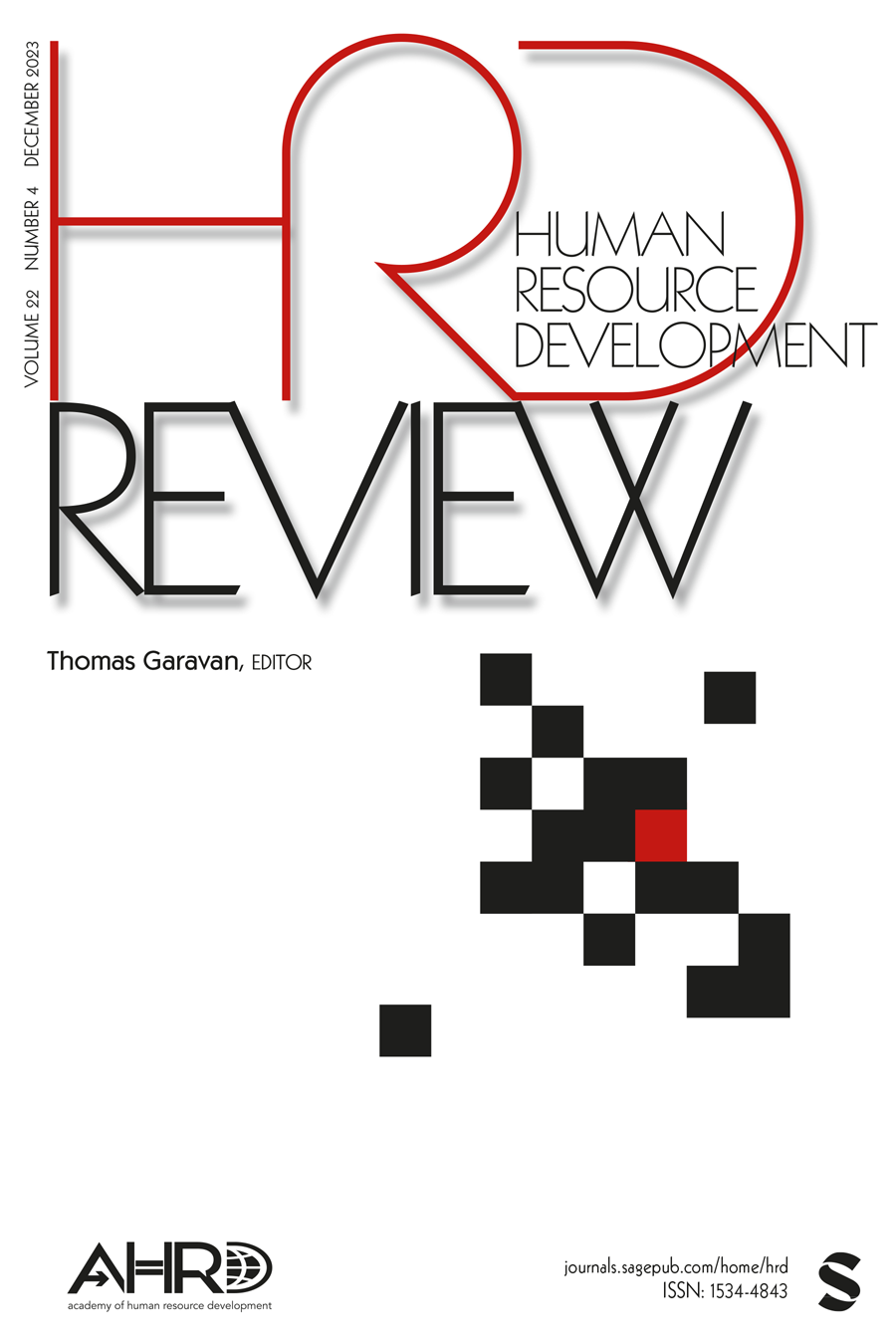从疯狂的研究视角看真实领导力中的“真实性”
IF 4.6
3区 管理学
Q1 MANAGEMENT
引用次数: 1
摘要
精神痛苦的疯狂研究/社会模型镜头被用来批评真实的领导。我们通过探索真实的领导(dis)如何允许有精神疾病的人参与进来,解构了真实性和领导力的困境。我们发现他们的思想被认为是破坏性的,很少被视为真实的。对于追随者来说,将“精神疾病”领导者视为真实的领导者需要坦诚,残疾披露,并模仿他们内部成员的典型规范。我们通过挑战HRD重新思考其对破坏性领导作为精神疾病症状的立场来结束本文。精神健康边缘化的员工可以通过真实性建设经验在工作场所建立真实的身份,例如将疯狂的领导者与同伴支持培训联系起来,提供专门的领导力发展,以及共同制作精神健康意识课程,挑战对疯狂的领导者和员工进行污名化的不健康工作场所话语。本文章由计算机程序翻译,如有差异,请以英文原文为准。
Contesting “Authenticity” in Authentic Leadership through a Mad Studies Lens
A Mad Studies/social model of mental distress lens was used to critique authentic leadership. We deconstructed the dilemma of authenticity and leadership by exploring how authentic leadership (dis)allows the inclusion of people with mental illness. We found that their minds are treated as disruptive and rarely ever read as authentic. For followers to view “mentally ill” leaders as authentic requires candidness, disability disclosure, and emulating norms typical to their ingroup membership. We conclude this paper by challenging HRD to rethink its stance on disruptive leadership as symptomatic of mental illness. Employees with mental health marginality can develop an authentic identity in the workplace through authenticity building experiences such as connecting mad leaders to peer-support training, offering specialized leadership development, and co-producing a mental health awareness curriculum that challenges unhealthy workplace discourses that stigmatize mad leaders and workers.
求助全文
通过发布文献求助,成功后即可免费获取论文全文。
去求助
来源期刊

Human Resource Development Review
MANAGEMENT-
CiteScore
9.60
自引率
17.20%
发文量
35
期刊介绍:
As described elsewhere, Human Resource Development Review is a theory development journal for scholars of human resource development and related disciplines. Human Resource Development Review publishes articles that make theoretical contributions on theory development, foundations of HRD, theory building methods, and integrative reviews of the relevant literature. Papers whose central focus is empirical findings, including empirical method and design are not considered for publication in Human Resource Development Review. This journal encourages submissions that provide new theoretical insights to advance our understanding of human resource development and related disciplines. Such papers may include syntheses of existing bodies of theory, new substantive theories, exploratory conceptual models, taxonomies and typology developed as foundations for theory, treatises in formal theory construction, papers on the history of theory, critique of theory that includes alternative research propositions, metatheory, and integrative literature reviews with strong theoretical implications. Papers addressing foundations of HRD might address philosophies of HRD, historical foundations, definitions of the field, conceptual organization of the field, and ethical foundations. Human Resource Development Review takes a multi-paradigm view of theory building so submissions from different paradigms are encouraged.
 求助内容:
求助内容: 应助结果提醒方式:
应助结果提醒方式:


